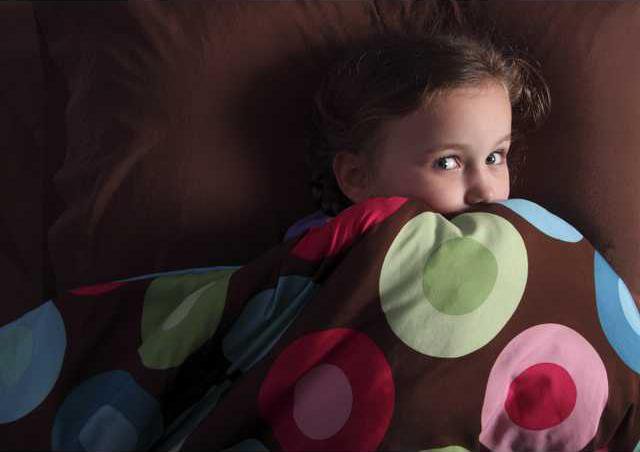There may be more to your childs fear of the boogeyman than you think.
A 2014 study published in the British Journal of Psychiatry found that persistent nightmares in childhood could be linked to mental health disorders later in life, according to Science Daily.
The study asked parents to file reports about their childs nightmare behaviors from age 2 to 9 and then interviewed those children when they were 12 and 18. Researchers found that at age 12, one in four children had experienced nightmares in the last six months.
Of those who had nightmares, 7.9 percent were found to have psychotic symptoms, like delusions and hallucinations.
"The presence of anxiety and depressive symptoms as confounding factors in those with sleep disturbance could potentially explain the findings, the studys lead author, Dr. Andrew Thompson, said, according to Science Daily. Experience of stressful events has also been related to both the development of both nightmares and psychotic symptoms in late childhood and may be important."
Thompson said this study could help researchers learn a little bit more about nightmares and night terrors and how they affect people every day, according to Science Daily.
After all, previous research has found links between children who have nightmares and children who show signs of schizophrenia, only researchers werent sure which came first the mental health disorder or the nightmares, Live Science reported.
It is likely that in some individuals, nightmares and night terrors have little significance to later psychopathology, Thompson said, according to Science Daily.
However, in individuals with additional risks such as a family psychiatric history or a past exposure to trauma by adults or peers, such sleep problems may have greater significance and may also highlight other unnoticed psychopathology or trauma."
Parents can help their children avoid nightmares, though. The National Sleep Foundations Jodi Mindell says its important for parents to listen to their childs fears and actively try to understand them, rather than dismiss or make fun of them.
The NSF also recommends that parents reassure children that theyre in a safe environment and teach them how to cope with their fears, like using a monster spray to send the boogeyman away from your childs room.
Use your imagination to fight imaginary fears, like monsters, Mindell wrote. Many families have found monster spray to be a wonderful way to help a child cope with bedtime fears. Some children are comforted by having a pet nearby for night-time company (even a bedside fish tank may help). Whenever possible, have your child be actively involved in coming up with solutions to help him gain a sense of mastery and control.
A 2014 study published in the British Journal of Psychiatry found that persistent nightmares in childhood could be linked to mental health disorders later in life, according to Science Daily.
The study asked parents to file reports about their childs nightmare behaviors from age 2 to 9 and then interviewed those children when they were 12 and 18. Researchers found that at age 12, one in four children had experienced nightmares in the last six months.
Of those who had nightmares, 7.9 percent were found to have psychotic symptoms, like delusions and hallucinations.
"The presence of anxiety and depressive symptoms as confounding factors in those with sleep disturbance could potentially explain the findings, the studys lead author, Dr. Andrew Thompson, said, according to Science Daily. Experience of stressful events has also been related to both the development of both nightmares and psychotic symptoms in late childhood and may be important."
Thompson said this study could help researchers learn a little bit more about nightmares and night terrors and how they affect people every day, according to Science Daily.
After all, previous research has found links between children who have nightmares and children who show signs of schizophrenia, only researchers werent sure which came first the mental health disorder or the nightmares, Live Science reported.
It is likely that in some individuals, nightmares and night terrors have little significance to later psychopathology, Thompson said, according to Science Daily.
However, in individuals with additional risks such as a family psychiatric history or a past exposure to trauma by adults or peers, such sleep problems may have greater significance and may also highlight other unnoticed psychopathology or trauma."
Parents can help their children avoid nightmares, though. The National Sleep Foundations Jodi Mindell says its important for parents to listen to their childs fears and actively try to understand them, rather than dismiss or make fun of them.
The NSF also recommends that parents reassure children that theyre in a safe environment and teach them how to cope with their fears, like using a monster spray to send the boogeyman away from your childs room.
Use your imagination to fight imaginary fears, like monsters, Mindell wrote. Many families have found monster spray to be a wonderful way to help a child cope with bedtime fears. Some children are comforted by having a pet nearby for night-time company (even a bedside fish tank may help). Whenever possible, have your child be actively involved in coming up with solutions to help him gain a sense of mastery and control.





